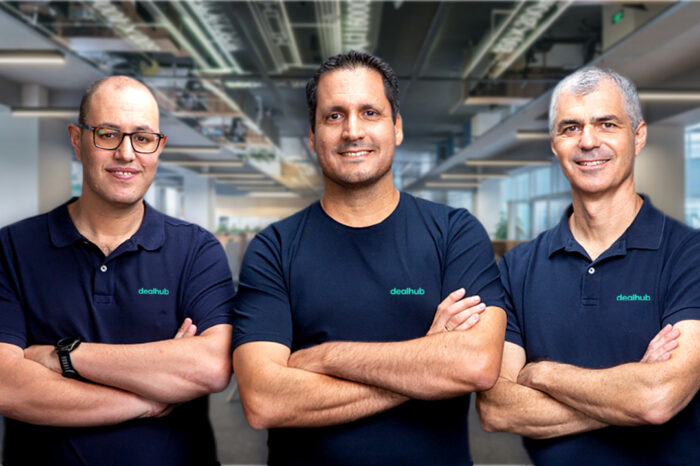Top Tech News Today, November 19, 2025

Top Tech News Stories Today — Your Quick Briefing on the Latest Technology News, Global Innovation, and AI-Driven Shifts Reshaping the Future
It’s Wednesday, November 19, 2025, and we’re back with your in-depth look at the most important developments shaping the global tech landscape — from major AI infrastructure bets and cross-border capital flows to Big Tech regulatory battles, fast-moving enterprise cybersecurity threats, and pivotal advances in quantum, cloud, and frontier research.
Whether you’re a founder, investor, policymaker, engineer, or tech enthusiast, this briefing keeps you ahead of the curve — no noise, no endless scrolling. Just authoritative reporting distilled into a clear context on how these shifts affect startups, enterprise operators, and the broader market dynamics shaping the next wave of innovation.
Here’s your comprehensive roundup of the latest tech news making waves today.
1. Nvidia’s AI Chip Shift Poised to Double Server-Memory Prices by 2026
Nvidia is transitioning its AI servers from traditional DDR5 DRAM to LPDDR, the low-power memory used in smartphones, to cut energy consumption and improve performance per watt. However, a new report from Counterpoint Research warns that this pivot will push server-memory demand into uncharted territory, as AI servers require significantly more chips than phones.
Memory makers like Samsung, SK Hynix, and Micron have already been reallocating capacity to high-bandwidth memory for AI GPUs, leaving “legacy” DRAM in tight supply. Nvidia’s LPDDR demand could force it to divert even more fab capacity, with Counterpoint projecting server-memory prices could double by late 2026, adding another cost spike on top of record GPU and power bills for hyperscalers.
Why It Matters: If this plays out, the AI boom won’t just be about expensive GPUs — memory will become a second major choke point, squeezing cloud margins and smaller AI startups that rent infrastructure.
Source: Reuters / Counterpoint Research
2. EU Plans to Ease AI and Privacy Rules, Critics Call It a Win for Big Tech
The European Commission is preparing a “Digital Omnibus” package that would soften parts of the GDPR, the AI Act, the ePrivacy Directive, and the Data Act in the name of cutting red tape. Draft plans would let companies train AI models on personal data under “legitimate interest” without explicit consent, and delay enforcement for certain high-risk AI systems by a year.
Industry giants, including Alphabet, Meta, Siemens, and SAP, have lobbied hard for these changes, saying Europe’s rules make it harder to compete with U.S. and Chinese rivals. Privacy advocates and 127 civil groups say the proposal amounts to “the biggest rollback of digital fundamental rights in EU history,” accusing Brussels of bowing to Big Tech and pressure from the Trump administration. The package still needs approval from EU governments and Parliament.
Why It Matters: This is a pivotal moment: either Europe doubles down on strong digital rights or pivots toward a more industry-friendly model that could reshape global AI and privacy norms.
Source: Reuters
3. Spain Opens Parliamentary Probe into Meta Over Android Tracking
Spain’s parliament will investigate Meta over allegations that Facebook and Instagram tracked Android users’ web activity using a hidden mechanism, potentially violating multiple EU laws, including GDPR, the ePrivacy Directive, and the Digital Markets and Digital Services Acts.
Prime Minister Pedro Sánchez said “the law is above any algorithm,” warning that any platform breaching citizens’ rights will “pay the consequences.” Researchers claim Meta embedded undisclosed tracking methods in its apps, raising questions about consent and transparency for millions of Spanish users. Meta has not yet commented.
Why It Matters: The case could become a testbed for how aggressively EU member states enforce the bloc’s toughest privacy and platform rules against Big Tech.
Source: Reuters
4. Google DeepMind to Open New AI Lab in Singapore
Google’s DeepMind unit is launching a new AI research lab in Singapore, its first in Southeast Asia. The lab will focus on applying AI to regional priorities, including education, healthcare, and scientific research, and will work with local universities, public agencies, and industry partners.
DeepMind already runs labs in London, Paris, and other hubs; the Singapore expansion reflects both the government’s aggressive AI national strategy and Big Tech’s push to capture talent and workloads in a fast-growing region. The move also signals Google’s intent to stay highly visible in applied AI as rivals like OpenAI, Anthropic, and xAI draw headlines
Why It Matters: AI research is clustering around talent-dense hubs; putting a DeepMind lab in Singapore further cements the city-state as Southeast Asia’s primary AI nerve center.
Source: Reuters
5. Musk and Nvidia’s Jensen Huang to Pitch AI at U.S.–Saudi Business Forum
Elon Musk and Nvidia CEO Jensen Huang are expected to speak at a high-profile U.S.–Saudi business forum in Washington, with AI, energy, and infrastructure at the center of the agenda.
Saudi Arabia has been aggressively spending on AI infrastructure, data centers, and chip investments as it seeks to diversify away from oil. Bringing the top voices in AI hardware (Huang) and AI-heavy platforms (Musk via xAI and Tesla) into the same room as Gulf capital underscores how geopolitics, sovereign wealth, and AI infrastructure are converging.
Why It Matters: The forum highlights how state-backed capital from the Gulf could shape where the next wave of AI data centers and model-training capacity gets built.
Source: Reuters via The Wall Street Journal
6. xAI in Talks to Raise Up to $15B at $230B Valuation
Elon Musk’s AI startup xAI is in advanced discussions to raise as much as $15 billion at a valuation that could hit $230 billion, according to people familiar with the talks cited in a new report. Investors would be betting not just on xAI’s Grok model, but on Musk’s plan to integrate AI across X, Tesla, and other properties. TechStartups reported the story last week, citing a CNBC exclusive that xAI was exploring a $15 billion raise to fuel its AI infrastructure buildout. Musk later went on X to dismiss the report as “false.”
That valuation would put xAI in the same league as some of the largest global tech companies, despite being a very young startup. It reflects the capital arms race in frontier models, where OpenAI, Anthropic, and xAI are all chasing multi-billion-dollar war chests tied to long-term compute access deals.
Why It Matters: If the round closes near these terms, it will cement xAI as one of the most richly valued private AI companies on the planet and intensify pressure on rivals to keep raising.
Source: Reuters (summary of Wall Street Journal reporting)
7. Brookfield Seeks $10B for New AI Infrastructure Fund
Brookfield Asset Management is targeting $10 billion for a dedicated AI infrastructure fund that will back data centers, power projects, and related assets needed to run large-scale AI workloads. Over time, Brookfield expects that platform to support as much as $100 billion in AI-related assets via co-investments and additional vehicles.
The strategy complements Brookfield’s existing data-center and renewable-energy portfolio and underscores a view now common on Wall Street: the real “picks and shovels” of the AI boom are power, cooling, land, and networking. As hyperscalers sign long-term capacity deals, infra funds see AI as a decades-long capex cycle, not a passing hype wave
Why It Matters: AI isn’t just a software story; trillions in physical infrastructure will be financed off the back of demand from companies training and serving AI models.
Source: WSJ
8. AI Startup Fractal Analytics Ramps R&D Ahead of Planned IPO
India’s Fractal Analytics, an AI and analytics company serving global enterprises, is leaning heavily into R&D spending as it prepares for a public listing. The firm is investing in proprietary AI platforms and vertical solutions for sectors like financial services, retail, and healthcare to differentiate itself from generic analytics consultancies.
Fractal, backed by investors including TPG, sees the IPO as a way to scale faster in the U.S. and Europe while doubling down on India as a talent base. The company’s positioning reflects a broader shift: AI services firms are trying to move from labor-heavy consulting toward productized AI systems with recurring revenue.
Why It Matters: Fractal’s listing will be a key test of investor appetite for enterprise AI platforms outside the U.S. and could set benchmarks for other Indian AI startups.
Source: Reuters
9. FaithTech Startup Gloo Raises $72.8M in U.S. IPO
Gloo, a U.S. cloud platform that builds data and engagement tools for churches and faith-based organizations, raised $72.8 million in its IPO after pricing at the top of its range. The company offers analytics, messaging, and community-building tech tailored to religious institutions and nonprofits.
The listing gives Gloo fresh capital to expand its software suite and international reach at a time when many SaaS IPOs remain on ice. It also spotlights a niche but growing segment: “faithtech” platforms that bring CRM, marketing automation, and data insights into religious communities that historically relied on spreadsheets and email lists.
Why It Matters: Gloo’s successful IPO shows there is still public-market appetite for vertical SaaS, especially platforms with clear communities and sticky, mission-driven customers.
Source: Reuters
10. Malaysian Utility Says Illegal Crypto Mining Cost It Over $1B
Malaysia’s national utility, Tenaga Nasional, says it has lost more than 4.9 billion ringgit (over $1 billion) in revenue over the past decade due to illegal power connections used for cryptocurrency mining.
Crypto miners have allegedly bypassed meters and tapped directly into the grid, triggering outages, equipment damage, and higher costs for honest customers. The company is advocating for stricter enforcement and advanced technology to identify unusual consumption patterns, while emphasizing that cryptocurrency mining continues to strain grids in multiple countries amid rising AI-driven power demand.
Why It Matters: The story underlines how opaque, energy-intensive computing — from crypto to AI — is reshaping utility economics and forcing regulators to rethink how power theft is monitored and punished.
Source: Reuters
11. Ocado Stock Slumps as Kroger Shutters Three Robotic Warehouses
Shares of UK online-grocery automation firm Ocado fell sharply after U.S. partner Kroger decided to close three of the high-tech fulfillment centers powered by Ocado’s robotics and software.
The closures raise questions about the economics of large, centralized automated warehouses, especially in a higher-rate environment where capital is more expensive and grocery margins are thin. Ocado says it remains committed to its U.S. strategy with Kroger, but investors are nervous that the model may need rethinking toward more flexible or hybrid fulfillment setups.
Why It Matters: It’s a fresh reminder that not every automation thesis scales cleanly from slide deck to supermarket — and that unit economics can trump even very slick robotics tech.
Source: Reuters
12. Fortinet Patches Actively Exploited FortiWeb Zero-Day (CVE-2025-58034)
Fortinet has released security updates for a critical vulnerability, CVE-2025-58034, in its FortiWeb web-application firewall appliance. The flaw, an improper neutralization of input vulnerability, allows remote attackers to execute code on affected systems without authentication. Security researchers report that threat actors are already exploiting it in the wild against exposed FortiWeb instances.
Fortinet urges customers to patch immediately, publish compensating controls, and audit logs for signs of compromise. The incident follows a series of high-profile Fortinet bugs targeted by ransomware and state-linked groups over the last few years, making the company’s appliances a recurring focus for attackers who want to pivot deeper into enterprise and government networks.
Why It Matters: Any org running FortiWeb on the edge now has an urgent patching job — and another reminder that perimeter security appliances remain prime targets for fast-moving exploit campaigns.
Source: Security Affairs
13. Google Sues “Lighthouse” Phishing-as-a-Service Operators
Google has filed a civil lawsuit in U.S. federal court against the operators of Lighthouse, a large phishing-as-a-service (PhaaS) platform that allegedly sold turnkey phishing kits impersonating brands like E-ZPass, USPS, and Google itself. The complaint uses a mix of the Computer Fraud and Abuse Act (CFAA), the Lanham Act (trademark law), and RICO to go after the operation’s infrastructure and domains.
Instead of waiting for criminal prosecutions — which can be slow and complicated by foreign jurisdictions — Google is seeking injunctions that would let it seize or shut down servers, domains, and hosting accounts tied to Lighthouse. The case follows similar civil actions by Microsoft, Meta, and others and reflects a growing trend of tech companies using civil courts as an offensive cyber tool.
Why It Matters: If successful, the lawsuit could further legitimize “sue the hackers” as an active defense strategy, giving large platforms another lever to dismantle cybercrime infrastructure.
Source: Security Boulevard
14. Cloudflare Details Root Cause of Major Global Outage
Cloudflare has published a detailed post-mortem on the November 18 global outage that disrupted traffic for millions of websites. Contrary to initial fears of a massive DDoS attack, the company says the incident was triggered by a routine database-permission change in its ClickHouse system. That change caused a configuration file for its bot-management machine-learning features to bloat from ~60 features to over 200, blowing past hard-coded memory limits in proxy software and causing repeated crashes.
As the oversized configuration file regenerated every five minutes, services would repeatedly fail and recover, complicating diagnosis. The outage disrupted CDN services, bot detection, authentication, and email security until engineers rolled back the config and deployed a known-good file. Cloudflare calls it its worst outage since 2019 and is promising stricter validation, better kill switches, and improved failure modes across its proxy stack.
Why It Matters: It’s a textbook example of how seemingly small configuration tweaks in AI-driven systems can spiral into internet-scale failures — and why resilience engineering matters as much as raw performance.
Source: GBHackers / Cloudflare post-mortem
15. Quantum Error Correction Becomes “Universal Priority” as Talent Shortage Bites
A new QEC Report 2025 finds that real-time quantum error correction has become the “universal priority” for the industry, overtaking qubit counts as the defining challenge on the road to utility-scale quantum computing. Global public funding has reached about $50 billion, with Japan now leading annual government investment and Google’s late-2024 QEC demonstration reshaping hardware roadmaps across platforms.
The report warns that the biggest bottleneck isn’t just hardware but people: only an estimated 1,800–2,200 professionals specialize in quantum error correction worldwide, and up to two-thirds of QEC-related job openings are unfilled. AI is starting to help with real-time decoding and error-syndrome detection, but it introduces its own compute demands and uncertainty. The industry is racing to build dedicated decoders, FPGAs, and ASICs capable of sub-microsecond response times.
Why It Matters: The findings reinforce a harsh reality: quantum’s next leap depends as much on specialized talent and error-correction hardware as on splashy “more qubits” announcements.
Source: The Quantum Insider / Riverlane QEC Report 2025
Closing
That’s a wrap on today’s top stories shaping the global tech landscape — from the intensifying race for AI model dominance and the massive capital shifting into data centers, power, and memory, to the regulatory pressure mounting on Big Tech across Europe and the escalating security risks moving through enterprise networks. We also tracked the latest frontier-research milestones in quantum error correction, the shifts in global AI talent hubs, state-backed infrastructure investment, and the evolving economics of automation as retailers and cloud providers reassess their long-term strategies.
Stay tuned for tomorrow’s edition as we continue following the breakthroughs, policy battles, capital flows, and engineering decisions redefining how the world builds, secures, and governs the next wave of technology — and the founders pushing to stay ahead in a market where execution, credibility, and measurable impact matter more than ever.
That’s your quick tech briefing for today. Follow us @TheTechStartups on X for real-time updates.




